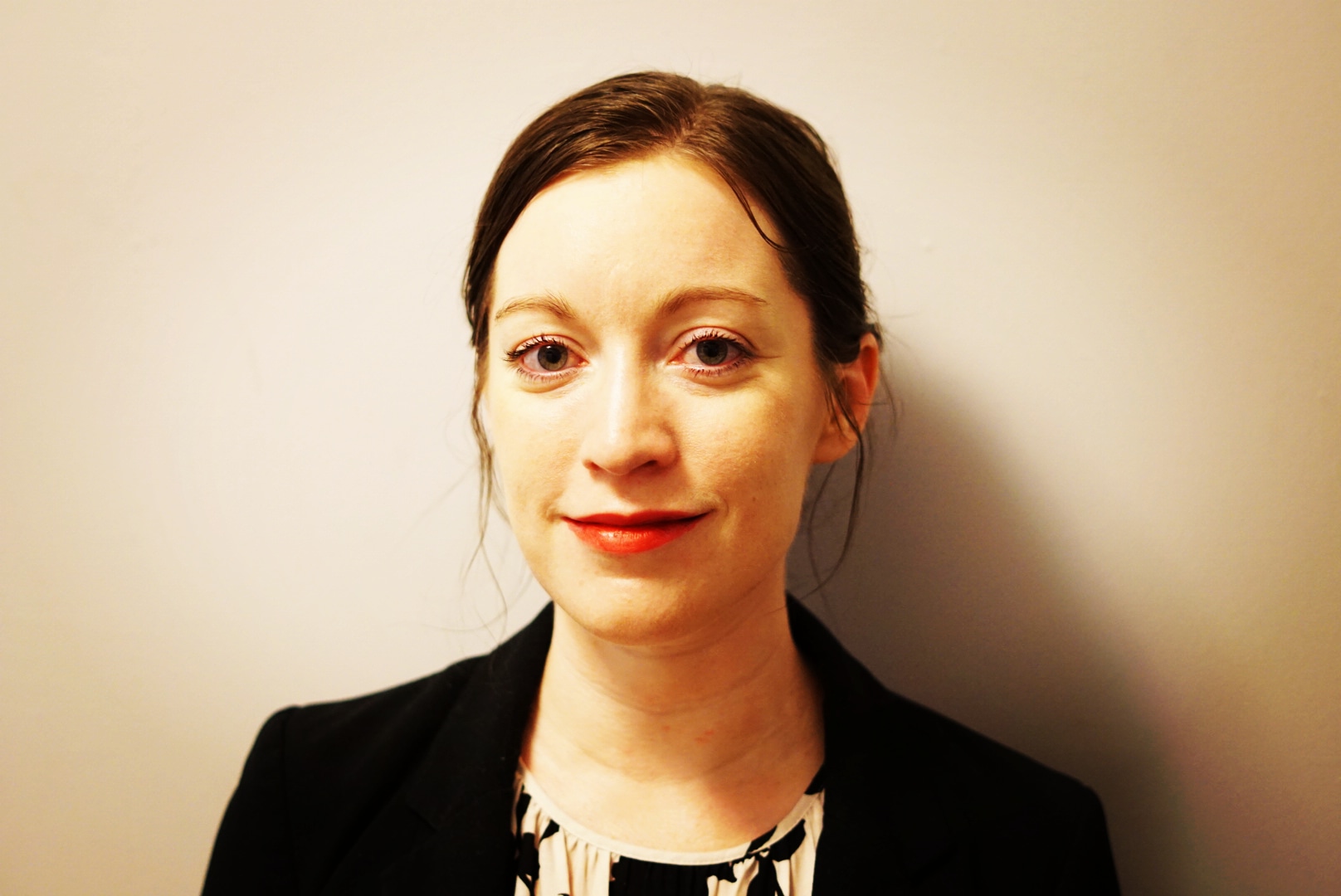What Is Life Insurance?
Learn the differences between policies and other key details to decide which type of life insurance, if any, is right for you.

Erin Bendig
Profit and prosper with the best of Kiplinger's advice on investing, taxes, retirement, personal finance and much more. Delivered daily. Enter your email in the box and click Sign Me Up.
You are now subscribed
Your newsletter sign-up was successful
Want to add more newsletters?

Delivered daily
Kiplinger Today
Profit and prosper with the best of Kiplinger's advice on investing, taxes, retirement, personal finance and much more delivered daily. Smart money moves start here.

Sent five days a week
Kiplinger A Step Ahead
Get practical help to make better financial decisions in your everyday life, from spending to savings on top deals.

Delivered daily
Kiplinger Closing Bell
Get today's biggest financial and investing headlines delivered to your inbox every day the U.S. stock market is open.

Sent twice a week
Kiplinger Adviser Intel
Financial pros across the country share best practices and fresh tactics to preserve and grow your wealth.

Delivered weekly
Kiplinger Tax Tips
Trim your federal and state tax bills with practical tax-planning and tax-cutting strategies.

Sent twice a week
Kiplinger Retirement Tips
Your twice-a-week guide to planning and enjoying a financially secure and richly rewarding retirement

Sent bimonthly.
Kiplinger Adviser Angle
Insights for advisers, wealth managers and other financial professionals.

Sent twice a week
Kiplinger Investing Weekly
Your twice-a-week roundup of promising stocks, funds, companies and industries you should consider, ones you should avoid, and why.

Sent weekly for six weeks
Kiplinger Invest for Retirement
Your step-by-step six-part series on how to invest for retirement, from devising a successful strategy to exactly which investments to choose.
What is life insurance? At first glance, it sounds pretty straightforward. It insures that your family will be financially secure in the event of your death.
In exchange for premium payments (and if your policy is active when you die), the insurance company will pay a lump sum — referred to as a death benefit — to your life insurance beneficiaries.
However, not all life insurance policies are the same and, in many cases, there's a lot more going on than just a death benefit. Many policies come with ways to use life insurance while you're still alive. Some can even double as a retirement fund.
From just $107.88 $24.99 for Kiplinger Personal Finance
Become a smarter, better informed investor. Subscribe from just $107.88 $24.99, plus get up to 4 Special Issues

Sign up for Kiplinger’s Free Newsletters
Profit and prosper with the best of expert advice on investing, taxes, retirement, personal finance and more - straight to your e-mail.
Profit and prosper with the best of expert advice - straight to your e-mail.
If you've tried shopping around for a policy yourself, you might have gotten lost in a rabbit hole of different types and subtypes of life insurance. There's term life, whole life, universal life, indexed whole life, variable universal — the list keeps going.
To help demystify all this without the life insurance sales pitch, we broke down some of the most common types of life insurance, along with the optional riders you can add to further customize your policy.
You'll also find tips and insights on how to figure out whether you need life insurance and which policy type makes the most sense for you.
What is term life insurance?

Term life insurance covers you for a set period of time, usually 10, 20 or 30 years. If you die within this time frame, your beneficiaries will be paid the amount specified in the policy.
However, if you outlive your policy, no one receives a payout.
Term life insurance is typically the cheapest option for life insurance and has no cash value component. There are a few types of term life insurance policies.
Renewable term life insurance
According to the National Association of Insurance Commissioners (NAIC), "renewable term insurance guarantees the policyholder the right to renew at the end of the contract period without evidence of insurability as long as the premium is paid."
In other words, you'll have the option to extend the term without needing to go through a new medical examination or to meet certain health requirements.
However, there are usually limits. For example, some policies set a maximum renewal age, after which you can't renew the policy again. It also doesn't necessarily renew at the same rate, so your premiums could go up as you age.
The key advantage of this type of life insurance is low initial cost and no risk of being denied coverage later on the basis of your health. It also gives you the flexibility to continue coverage only if you need it.
You should compare the premiums of a renewable policy to a standard term life insurance policy that lasts for the entire length of time you might need coverage.
It might be cheaper to get a 20-year term life insurance policy rather than a renewable 10-year policy. If you don't need life insurance 10 years from now, you can stop making payments and let the 20-year policy lapse.
The risk here is that if you allow the policy to lapse, then later decide you do need life insurance, you'll need to go through the health underwriting process all over again. That's the advantage that a renewable policy helps you avoid.
Decreasing term life insurance
With a decreasing term policy, coverage decreases over the life of the policy at a set rate. As your savings and investments increase in value over the years, the amount of coverage your family would need if you were to pass away decreases.
In exchange for agreeing to a decreasing death benefit to reflect that declining coverage need, you can enjoy decreasing premiums over the term of the policy.
This form of insurance is also sometimes required by lenders to secure a loan, such as a mortgage or small business loan.
Convertible term life insurance
A convertible term insurance policy allows an individual to convert a term policy to a permanent policy.
This is useful for younger policyholders as it allows you to buy the much more cost-effective term life insurance now and convert it into a more comprehensive permanent policy at the end of that term.
By not opting for pricier permanent life insurance right away, you can put the money you're saving on premiums toward your retirement savings.
Before your term life insurance expires, you can re-evaluate your financial situation and needs to convert it into one of the permanent policies discussed below.
What is permanent life insurance?

Permanent life insurance. as the name suggests, covers you for the remainder of your life — as long as you keep up with the premium payments.
Although more expensive than term life policies, permanent life insurance policies build cash value over time.
The most well-known form of permanent life insurance is whole life insurance.
Whole life insurance
Whole life insurance doesn't expire and offers a fixed death benefit when the policyholder dies. Both the death benefit and the premium are designed to remain constant throughout the life of the loan.
Another perk of a whole life policy is that a portion of each premium payment is put into a savings component referred to as the cash value.
According to the National Association of Insurance Commissioners (NAIC), "Whole life policies are designed to build tax-deferred cash value, which is the accumulation of premiums collected, less applicable expenses and applicable insurance charges, and they allow for borrowing against the cash value of the policy."
Typically, your premium payments (or part of them) are going into a tax-deferred investment portfolio that grows over time at a guaranteed fixed rate. It's a bit like having a high-yield savings account nested inside of your life insurance policy.
You can withdraw from this cash value and use it like retirement income without impacting your death benefit.
You can also borrow against it similar to the way some 401(k) accounts allow you to borrow a portion of your savings.
Universal life insurance
Like whole life insurance, a universal life insurance policy has a savings component that grows over time and allows you to borrow from it if needed.
The key difference is that the interest rate at which that cash value grows isn't fixed.
There's a guaranteed minimum interest rate, but beyond that, the actual growth rate will fluctuate based on market conditions, just as an investment portfolio would.
It also gives you the option to use your cash value to make premium payments, so you can stop paying once you've built up enough cash value.
Variable life insurance
In a variable life insurance, both the death benefit and the cash value can be variable. That makes it riskier than other types of permanent life insurance but also increases the potential for returns.
On the cash value side, your cash is invested in the market, where it can earn (or lose) interest over time. There's usually no guaranteed minimum as there is with whole life or universal life insurance. If you have the risk tolerance for it, it can be a good way to grow your cash value faster.
On the death benefit side, some variable life insurance policies offer a fixed death benefit, while others tie the benefit amount to your policy's cash value.
What optional riders can you add to your life insurance?

In addition to deciding between the different types of life insurance policies, you'll also come across dozens of riders that you can tack onto the policy you choose. These additional types of coverage typically either enhance the benefits, add living benefits that you can use yourself or help you manage the cost of life insurance premiums.
Not every insurer will offer all these riders and some will have options that aren't on this list. But here are some additional coverage options you're most likely to run into as you shop for life insurance.
- Accelerated death benefit: This rider allows you to claim some or all of your death benefit yourself while you're still alive. It's typically limited to a set of specified serious or terminal illnesses. The amount you take might be deducted from the remaining death benefit your beneficiaries receive.
- Long-term care rider: This is another living benefit you can add that will cover the costs of long-term care such as a home health aide, moving into a nursing home or staying in a long-term care facility. This can be useful, as these are expenses that health insurance won't always cover. Note that these costs are usually deducted from the death benefit your beneficiary receives. It's also usually capped at either a specified lump sum or a percentage of your death benefit.
- Family income: This rider is usually added to term life policies. It specifies that the death benefit will be paid in monthly installments, rather than as a single lump sum. These payments can be set at your current income level so that they essentially replace the income you provided for your family.
- Cost of living: Adding this rider will allow your death benefit to gradually increase over time to account for inflation. But note that your premium will also go up as your death benefit increases.
- Return of premium: With term life insurance, you and your family don't get any payout if your policy expires before you do. If you don't want all those premium payments to feel like a waste, this rider creates an agreement to refund your premium payments. The refund might exclude fees or premiums paid on additional riders. It's also usually contingent on you making all your payments on time throughout the term of the policy.
- Accidental Death and Dismemberment (AD&D): A standard life insurance pays out a death benefit regardless of cause of death (with certain exceptions). But adding an AD&D rider means you can also get a payout if you suffer a qualifying injury. This can protect you against financial loss if an accident doesn't kill you but does prevent you from working. The rider also usually provides an additional death benefit on top of your standard coverage if your cause of death qualifies as accidental (think car accident or drowning).
- Waiver of premium disability: If you become temporarily or permanently disabled that makes you unable to work or requires you to take disability leave, a waiver of premium disability rider would allow you to stop making payments on your life insurance without impacting your coverage. In the case of a temporary disability, your premiums will be waived for the duration of your recovery. If the disability is permanent, they'll be waived indefinitely. There's no payout involved. You simply get to keep your life insurance without having to pay for it anymore.
Tips for deciding which type of life insurance is right for you

Life insurance can be an important and affordable way to secure both your financial future and that of your loved ones who depend on you. Depending on where you are in life, the right policy can make sure that your retirement or your family's inheritance are locked in no matter what happens.
But it's easy to get lost in all the different types and optional add-ons. It's also easy to overpay for coverage you don't need if you're not careful. Your best bet is to talk with a financial adviser to get personalized advice about what makes sense for your situation. If you don't have an adviser, take some time to review your financial future.
Here are a few questions to ask to help you figure out if you need life insurance and, if so, which type might make the most sense to explore:
- Are you the sole or primary earner in your family? If your family relies your income alone, life insurance of some kind is almost a must. It will provide that peace of mind knowing that your family will be financially secure even in the worst-case scenario. You can probably stick with a basic policy as long as your long-term financial goals are on track.
- Are you in a dual-income household? If both you and your spouse work, and your long-term financial goals are on track, your life insurance needs depend on your situation. If you're living well below your means and your family could survive on a single income, it might be better to skip life insurance and stash what you would spend on premiums into savings or investments instead, especially if you're close to retirement. Otherwise, consider survivorship life insurance, which pays out a death benefit to the surviving spouse in the event one spouse passes.
- Are you on track to hit your retirement goals? If the answer is no or you're not sure, a permanent life insurance policy with a cash value component and other living benefits can help cover that gap.
- What would the financial impact be if you suffered a permanent disability or illness now? Factor in both the medical expenses associated with that and the lost income from no longer being able to work. If you're not the sole breadwinner in your household, it might be manageable. If not, a term life policy with riders covering chronic illnesses or disabilities could help protect you from that risk.
- What would the financial impact be if you suffered a permanent disability or illness in retirement? As you age, the risk of certain illnesses and injuries rise. When you're living on a fixed income in retirement, the costs of medical care for those things can easily upend your budget. If your retirement fund doesn't have much padding for emergencies, a permanent policy with a long-term care rider or accelerated death benefit might be a good idea.
- How close are you to retirement? If you've still got decades to go before you retire, the lower-cost term life options are usually a better bet. You want some protection because this far out, your savings and investment portfolio might not be healthy enough yet for your family to live on if needed. But you don't want to tie up too much of your cash in life insurance premiums when it would be better spent bulking up that portfolio. On the other hand, if you're a few years from retiring, you would only need to consider life insurance if there's a risk you could outlive your savings or a medical emergency could derail your retirement budget.
Related Content
Profit and prosper with the best of Kiplinger's advice on investing, taxes, retirement, personal finance and much more. Delivered daily. Enter your email in the box and click Sign Me Up.

Rachael Green is a personal finance eCommerce writer specializing in insurance, travel, and credit cards. Before joining Kiplinger in 2025, she wrote blogs and whitepapers for financial advisors and reported on everything from the latest business news and investing trends to the best shopping deals. Her bylines have appeared in Benzinga, CBS News, Travel + Leisure, Bustle, and numerous other publications. A former digital nomad, Rachael lived in Lund, Vienna, and New York before settling down in Atlanta. She’s eager to share her tips for finding the best travel deals and navigating the logistics of managing money while living abroad. When she’s not researching the latest insurance trends or sharing the best credit card reward hacks, Rachael can be found traveling or working in her garden.
- Erin BendigPersonal Finance Writer
-
 Ask the Tax Editor: Federal Income Tax Deductions
Ask the Tax Editor: Federal Income Tax DeductionsAsk the Editor In this week's Ask the Editor Q&A, Joy Taylor answers questions on federal income tax deductions
-
 States With No-Fault Car Insurance Laws (and How No-Fault Car Insurance Works)
States With No-Fault Car Insurance Laws (and How No-Fault Car Insurance Works)A breakdown of the confusing rules around no-fault car insurance in every state where it exists.
-
 7 Frugal Habits to Keep Even When You're Rich
7 Frugal Habits to Keep Even When You're RichSome frugal habits are worth it, no matter what tax bracket you're in.
-
 No-Fault Car Insurance States and What Drivers Need to Know
No-Fault Car Insurance States and What Drivers Need to KnowA breakdown of the confusing rules around no-fault car insurance in every state where it exists.
-
 Why Your Home Insurance Might Not Protect You If Someone Else Lives There
Why Your Home Insurance Might Not Protect You If Someone Else Lives ThereLetting a relative stay in a second home or inherited property can quietly change your insurance coverage and leave you exposed to costly liability claims.
-
 The 1-Month Rule for Setting Your Car Insurance Deductible
The 1-Month Rule for Setting Your Car Insurance DeductibleThe ideal car insurance deductible balances risk and savings. Here's how to find it.
-
 How Drones Can Affect Your Insurance Coverage
How Drones Can Affect Your Insurance CoverageHow insurers are using aerial imagery to assess homes, the backlash from policyholders and how state regulators are trying to rein in the practice.
-
 Does Your Car Insurer Need to Know All Your Kids? Michigan Cases Raise Question
Does Your Car Insurer Need to Know All Your Kids? Michigan Cases Raise QuestionWho you list on your policy matters more than most drivers realize, especially when it comes to who lives in your home.
-
 Is Home Insurance Tax Deductible?
Is Home Insurance Tax Deductible?With home insurance rates on the rise, you might be hoping to at least claim the cost as a tax deduction. Here's what you need to know ahead of tax season.
-
 Is Mechanical Breakdown Insurance Better Than an Extended Car Warranty?
Is Mechanical Breakdown Insurance Better Than an Extended Car Warranty?More insurers are starting to offer mechanical breakdown insurance to new car owners. What is it and should you buy it?
-
 9 Types of Insurance You Probably Don't Need
9 Types of Insurance You Probably Don't NeedFinancial Planning If you're paying for these types of insurance, you may be wasting your money. Here's what you need to know.